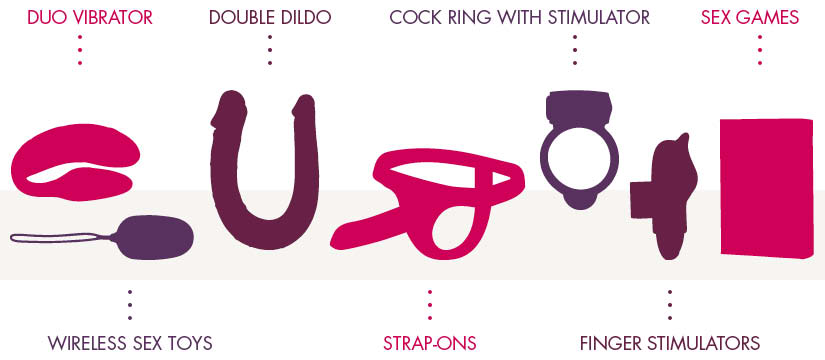People love stories. College is full of them. New places. New friends. New mistakes. And sometimes, new romance. But here’s the rule that makes everything better: keep it adult, keep it consensual, keep it kind. In this guide, you’ll learn how to craft and share college sex stories without crossing lines. You’ll get writing steps, privacy checklists, and non-graphic mini-scenes you can adapt. Everything here assumes adults only (18+), clear consent, and zero pressure.
We’ll keep sentences short. Words simple. Tips realistic. Let’s begin.
Why “clean” stories work better
Clean does not mean boring. Clean means no graphic details. No shock for shock’s sake. You focus on tension, pacing, consent, and care. Readers feel safe. They lean in. They imagine the rest. That is often hotter than a blow-by-blow.
Consent is the core (and yes, it’s sexy)
Ask. Wait. Listen. Repeat. Use tiny check-ins like:
- “Is this okay?”
- “Want me closer?”
- “More or less?”
- “Stop word is yellow. Cool?”
Want a simple refresher on affirmative consent? Read this friendly explainer: what is consent. That’s your single external link.
Tone and safety rules for college stories
- Adults only (18+).
- No power imbalances (professor/student, boss/employee).
- No pressure. No intoxication “shortcuts.”
- No graphic body descriptions.
- No shaming. No outing. No doxxing.
- Privacy first. Always change names, locations, and details.
The five parts of a great story (clean version)
- Hook — a look, a laugh, a line.
- Spark — a shared moment that shifts the air.
- Build — steps, music, hands, breath, pause.
- Consent — a clear yes, with simple words.
- Fade — cut to black with an image or sound.
You can do all of that in 300 words. Or 1,000. Keep it honest.
Setting ideas that feel like campus without naming one
- Library steps at twilight.
- Dorm lounge with string lights.
- Practice room with a dusty piano.
- Studio after hours.
- Film club screening night.
- Rainy walk under one umbrella.
- Coffee shop line before midterms.
Pick two sensory anchors (sound + light). Add one object (scarf, mug, key card). That’s enough scene.
12 clean non-graphic mini-vignettes (adult, consent-first)
Use these as seeds. Expand slowly. Keep the fade-to-black. No explicit details.
1) The Umbrella Deal
It is raining hard. We split one umbrella and walk too close. Your sleeve smells like soap. At the door you say, “I had a good time.” I say, “Me too.” A pause. “Can I kiss you?” You nod once. We both laugh at how shy that felt. The hallway light hums. Fade.
2) The Practice Room
The piano lid is dusty. The room is small. You play a chord and ask if I want to hear the chorus again. I stand behind your shoulder. “Closer okay?” “Yeah.” Your fingers stay on the keys. The bench has room for two. Fade.
3) The Midnight Grocery
We went out for ramen and came back with strawberries and a soft blanket. “Movie?” “Or we could talk.” We choose both. The first strawberry is too sweet. I say it anyway. You laugh and offer water. “Hand okay here?” “Yes.” Fade.
4) The Study Swap
We trade flashcards. You miss two. I miss four. “Consequence?” you ask. “Pick something kind.” You move one chair closer and ask, “Touch okay?” “Yes, slow.” We breathe with the desk lamp. Fade.
5) The Gym Corridor
Music leaks from the spin class. We sit on the floor with our backs to the wall. “I like your company,” you say. I say, “Same.” I ask, “Hug okay?” Your hands are warm. “One more?” “Yes.” Fade.
6) The Costume Box
The theater closet smells like sawdust and paint. We try on hats. You say I look serious in the black one. I say you look happier without any. “May I?” “Yes.” Soft kiss, softer laugh, softer still. Fade.
7) The Group Project
We finish slides at 11:52 p.m. The room is empty. “Tall chair or window ledge?” you ask. “Window.” We face the glass and watch the quad. “Hand okay?” you ask. “Yes.” The night feels friendly. Fade.
8) The Coffee Queue
The line is long. Your hands are cold. I offer my pockets. “Really?” “Really.” We share the pockets. “Later?” you ask. “If you want.” “I do.” Fade.
9) The Open Mic
Your poem is about summer storms. After, I say, “That third line.” You say, “Which one?” I read it back, shaky. “Hug okay?” “Please.” The host taps the mic. It booms. We jump, then laugh. Fade.
10) The Two Keys
We both live on the same floor. Two key cards beep. “Tea?” “Only if you rest while the water boils.” You sit. I sit closer. “May I touch your hair?” “Gently.” Steam fogs the small window. Fade.
11) The Clumsy Dance
Roommates are away. We copy a dance video and keep messing up. You count, “Five, six, seven…” I step on your sock. We stop on purpose and listen to our breath. “Kiss okay?” “Yes.” Fade.
12) The Quiet Bus
The shuttle is almost empty. I nap on your shoulder for four stops. “Was that okay?” I ask. “I liked it.” “More later?” you ask. “Yes, if you want.” The driver waves. We wave back. Fade.
Each “fade” invites the reader’s mind to finish the scene. No explicit detail. Just warmth, choice, and care.
Privacy checklist (protect yourself and others)
- Change names, majors, and timelines.
- Change the building and the city.
- Remove identifying jewelry or tattoos.
- Never share private messages or pics.
- Never post without clear permission.
- Consider a pen name for public sharing.
Privacy is not paranoia. It is kindness.
Writing prompts you can use tonight
- One object: a scarf, a mug, a sticker on a laptop.
- One sound: rain, vending machine hum, a bass line from next door.
- One question: “Is this okay?” “Do you want to keep talking?”
- One action: pass a pen, share a blanket, move one seat closer.
- One image for the fade: fogged glass, a half-open book, two key cards on a table.
Write for seven minutes. No editing. Then read it out loud once. Fix three words. Done.
Dialogue that keeps it safe and hot (without being graphic)
Use short lines. Use permission words.
- “Closer?”
- “Here okay?”
- “Slower?”
- “Stop?”
- “More?”
- “Tell me if you want me to move.”
These lines build trust. Trust builds heat.
Alcohol and pressure (don’t mix them)
If anyone is tipsy, pause. Make tea. Watch something. Walk. Save the moment for a clearer head. Good stories can wait. Pressure ruins nights and friendships.
Aftercare for stories (and for people)
Aftercare is not only for sex. It is for energy. Try this:
- Water for both.
- Two compliments each.
- A warm towel or blanket.
- “Anything to change next time?”
- A short walk or a shared snack.
The “two compliments” rule is tiny and powerful.
If you’re long-distance or in different dorms
- Read each other a clean, short scene over a call.
- Keep the fade.
- Ask one question: “What did you like most?”
- Plan a small, safe in-person moment for later—a coffee, a walk, a library date.
Stories carry you until the day you can meet.
Gentle craft upgrades (small changes, big gains)
- Cut adjectives. Use one strong verb.
- Break long lines. White space is breath.
- Add one sensory anchor per paragraph.
- Use names sparingly. Let actions speak.
- End early. The mind completes the scene.
Safety red flags to avoid in college stories
- Coercion dressed as romance.
- “Yes” while someone is impaired.
- Status gaps used for leverage.
- Sharing others’ private details for clout.
- Revenge storytelling.
- “It was just a joke.” Jokes do not erase harm.
If a story risks harm, do not hit “publish.”
How to publish with care (if you share online)
- Use a pen name.
- Remove campus tags.
- Post on a platform with good moderation.
- Add a note: “Adults only. Consent-first. Fictionalized.”
- Be ready to take it down if someone is uncomfortable.
Community is worth more than clicks.
Two example stories (clean, longer, adult, consent-first)
A) The Late Lab (Short Fiction, 18+)
The lab lights hum. Finals week. We finish the data sheet and watch the printer spit out two crooked pages. You say, “Walk me back?” The hall is empty. My backpack squeaks. At the door you pause. “Good luck tomorrow.” “You too.” I breathe in. “Can I hold your hand on the way?” You nod. Campus is colder than it looks. We don’t talk much. Your palm is warm. Near your place you stop. “One kiss?” “Only if you want.” “I do.” We miss each other’s lip by a little and laugh. The night feels kind. Fade.
B) The String Lights (Short Fiction, 18+)
The lounge smells like popcorn. Somebody left string lights on a timer. They click back to life just as you sit beside me with two mugs. “Too sweet?” you ask. “Perfect.” We trade class stories and the room gets quiet. “Can I sit closer?” “Please.” Your knee touches mine and we both notice. “May I kiss you?” “Yes.” We stay there for a while, not rushing, not planning more, just breathing where our knees meet. Fade.
Use the structure. Swap the places. Keep the care.
Body comfort and slow build
Most great nights are not acrobatics. They are steady rhythm, kind talk, and soft angles. If you ever explore sensual massage as part of your stories, you can link readers to ideas for glide and touch in body oil for sex so they learn warmth and pacing without graphic detail. (That’s your single internal link, placed once.)
Troubleshooting your draft
- Feels cheesy? Cut three adjectives. Replace with a small action.
- Feels rushed? Add one pause and one breath cue.
- Feels flat? Add a sound. Add a light source.
- Too long? End on the second-best line. Leave the best unsaid.
- Not sure it’s okay to post? Ask the person it’s about. Or don’t post.
A one-page plan to write tonight
- Pick a setting and two sensory anchors.
- Choose one object.
- Draft the Hook in two lines.
- Add a Spark (one beat).
- Add Consent in a short line.
- Fade with an image or a sound.
- Read once. Cut five words. Done.
Repeat next week with a new setting. You will improve fast.
FAQ: College Sex Stories
1) Can I write true stories?
Yes—only with consent and heavy anonymizing. Change every detail that could identify someone.
2) Do clean stories still feel sexy?
Often more. Tension, pace, and care create heat. Graphic detail is not required.
3) How do I handle consent in a story without killing the vibe?
Use short, natural lines: “Is this okay?” “Closer?” “More?” Readers feel safer. That makes the scene hotter.
4) What about alcohol?
Skip intimate scenes if anyone is impaired. Choose tea, water, or a walk instead. Safety beats drama.
5) How long should a story be?
500–1,200 words is plenty. Short scenes are easier to write and share.
6) Can I include kink?
Only with adult characters, clear consent, and non-graphic language. Start gentle. Keep it respectful.
7) How do I avoid clichés?
Use real campus textures: vending machine lights, bus brakes, key cards, library smells. Specific beats clichés.
8) How do I keep privacy safe?
Change names, majors, dorms, and times. Use a pen name. Never post someone’s messages or pics.
9) What if readers ask for explicit details?
You can say no. Your boundary is valid. Offer more tension and care instead.
10) How do I end without graphic content?
Use a fade. Choose one closing image: fogged glass, a door click, two mugs side by side.
11) Are these tips inclusive?
Yes. Adapt names, pronouns, bodies, and roles to your people. Consent and kindness fit everyone.
12) What’s the single best writing tip?
End early. Let the reader finish the scene in their mind. That’s where the heat lives.
Final words
College sex stories can be warm, kind, and powerful—without being explicit. Keep it adult. Keep it consensual. Build with pace, not pressure. Protect privacy. Use small sensory details. Fade to black. If you do these simple things, your stories will feel true, safe, and deeply attractive—both on the page and in real life.



![Most Powerful Bullet & Mini Vibrators [Tested in 2025]](https://couplepleasure.com/wp-content/uploads/2025/10/image-11-2.jpeg)
